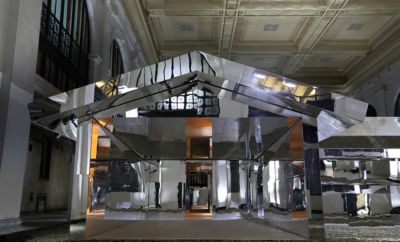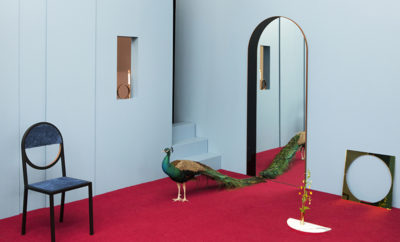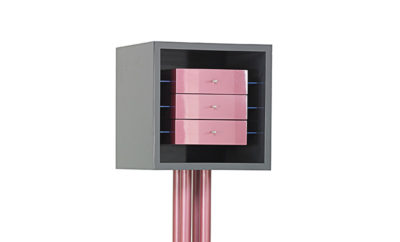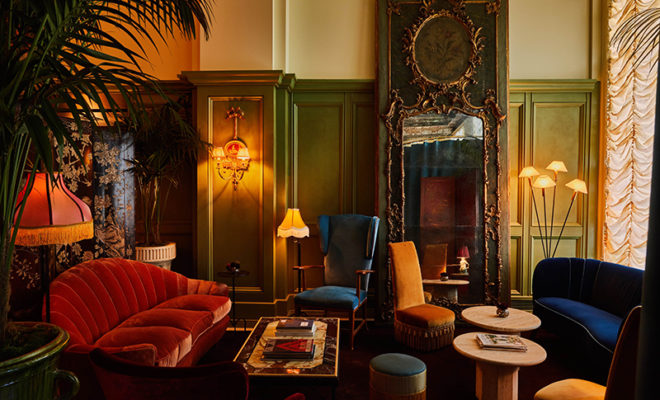 The hotel’s lobby is the perfect place for conversation and a cup of the in-house roaster’s Populace Coffee. CHRISTIAN HARDER PHOTO, COURTESY OF THE SIREN HOTEL.
The hotel’s lobby is the perfect place for conversation and a cup of the in-house roaster’s Populace Coffee. CHRISTIAN HARDER PHOTO, COURTESY OF THE SIREN HOTEL.
Design
Detroit’s Siren Song
THE MIGHTY WURLITZER HAS HIT A HIGH NOTE once again in Detroit. Literally crumbling for much of this century, the fourteen-story Wurlitzer Building, a downtown landmark that opened in 1926, has been restored by the New York development firm ASH NYC and is now home to The Siren Hotel. ASH NYC hopes the hotel—the name is a clever, musically oriented allusion to the creatures in Greek mythology who enthralled sailors with their song— will call people to the newly reinvigorated city.
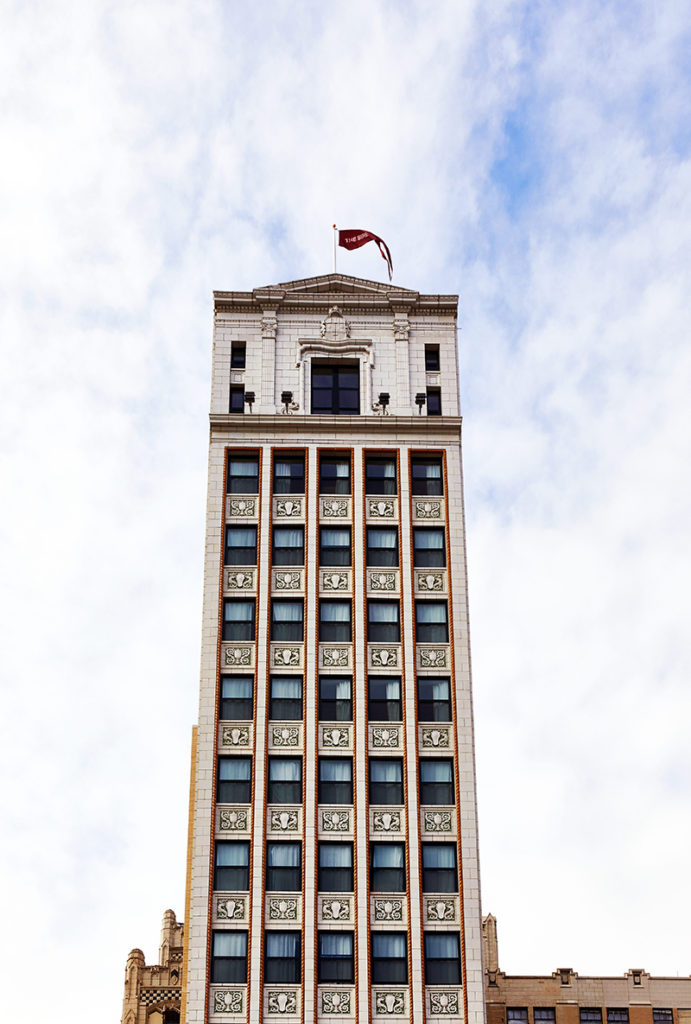
The historic Wurlitzer Building, completed in 1926, now home to The Siren Hotel. CHRISTIAN HARDER PHOTO, COURTESY OF THE SIREN HOTEL.
Rudolph Wurlitzer began building his musical instrument empire in Cincinnati in 1856, importing string instruments from Germany. The company gained renown after expanding its business to manufacture organs and pianos, eventually producing the “Mighty Wurlitzer” theater organ in 1910, aptly named for its incredible power, which became one of the firm’s most popular products. At around the same time, Detroit began to make its own name in American music. The city’s symphony orchestra was founded in 1914, the opera house opened in 1922, and within a few years the Detroit jazz and blues scenes were enlivened by the first wave of arrivals in the Great Migration of African Americans to the North.
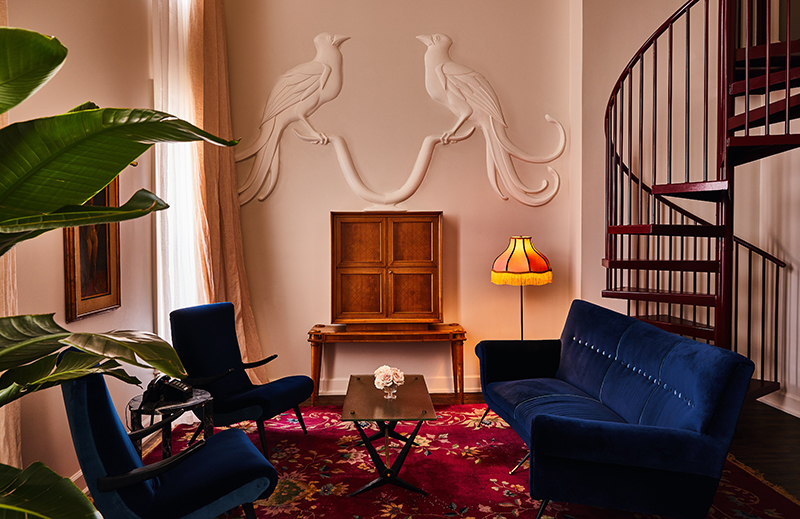
The penthouse features a double-height glass window with views over Comerica Park and downtown Detroit, as well as full living and dining rooms and a lofted sleeping area. CHRISTIAN HARDER PHOTO, COURTESY OF THE SIREN HOTEL.
Recognizing a steady customer base, Wurlitzer hired architect Robert Finn, who designed a Renaissance revival–style tower for the company’s Detroit home. Wurlitzer occupied much of the building for about fifty years, before joining the legions of residents abandoning properties in inner-city Detroit. Slowly, other tenants also moved out, and by 1982 the building was empty. After many years of desolation— with falling terra-cotta tiles and other architectural elements a constant hazard—Brooklyn-based ASH NYC purchased the building in 2015 and announced its future as a hotel. The company’s success with its first hotel, The Dean, in a refurbished 1912 building in Providence, Rhode Island, prompted ASH NYC to focus on more such revitalization projects. “We were interested in exploring cities that had similar characteristics: well-preserved historic architecture, a vibrant and growing arts and culture scene, burgeoning culinary density,” say the firm’s principals. “We went to Detroit on a day trip and fell in love with the grassroots energy and the people.”
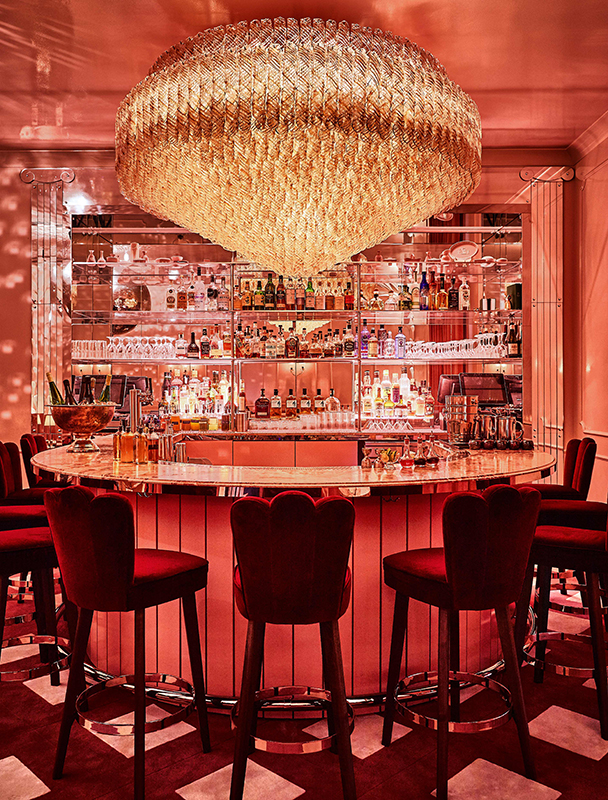
Candy Bar, the hotel’s cocktail lounge, stands out for its candy-pink ceiling and matching decor. CHRISTIAN HARDER PHOTO, COURTESY OF THE SIREN HOTEL.
The hotel boasts more than one hundred rooms, as well as seven food and beverage spaces. The Candy Bar, a bubblegum-pink wonderland, is the in-house cocktail lounge; Albena, helmed by James Beard–award nominee Garrett Lipar, is the tasting counter; and Sid Gold’s Request Room is The Siren’s very own piano and karaoke bar. The hotel is also the new home of the revered Detroit record shop Paramita Sound.
For those who saw the Wurlitzer in its previous state, the change will be a shock. ASH NYC transformed the eyesore into a lush getaway that recalls the allure of Detroit’s past. As the members of the firm say: “We sought to create a hotel that changed the Detroit narrative, which for the last few years has been about grit and industry. We looked back to the turn of the century when Detroit was a grand and elegant city, considered the Paris of the Midwest. We wanted to recapture some of the glamor that most people don’t know was a core element of Detroit.”


